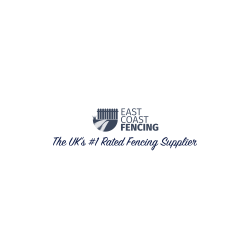How Does Rain Affect Your Fencing

Rain and its impact on fencing is a topic of paramount importance for homeowners and property managers alike. While fences serve a vital role in enhancing security, providing privacy, and demarcating boundaries, they are also exposed to the elements, including the potentially adverse effects of precipitation. Understanding how rain can affect different types of fencing materials can help in selecting the right fence for your property and in implementing effective maintenance strategies to prolong its lifespan.
The Impact of Rain on Wooden Fences
Wood, being a natural material, is particularly susceptible to rainwater. Over time, continuous exposure can lead to several issues:
Water Absorption and Swelling
Wooden fences absorb water during rainy seasons, which can cause the wood to swell. This swelling can lead to warping or twisting, compromising the structural integrity and aesthetic appeal of the fence.
Rot and Decay
Moisture is the primary catalyst for fungal growth, leading to wood rot. Once rot sets in, the damaged sections of the fence weaken and may ultimately require replacement.
Discolouration
Prolonged exposure to moisture can strip away the natural color of wood, leading to a grey and weathered appearance. Although some find this look attractive, it is usually a sign of the wood's protective oils being washed away.
The Effects of Rain on Metal Fences
Metal fences, including those made of iron, aluminum, and steel, are not immune to the effects of rain:
Rust and Corrosion
For metal fences, particularly those made of iron and steel, the primary concern is rust. Rainwater, combined with oxygen, leads to oxidation, which results in rusting. Over time, rust deteriorates the metal, affecting both its appearance and structural strength.
Galvanic Corrosion
This type of corrosion occurs when two different metals come into contact with each other in the presence of an electrolyte, like rainwater, leading to accelerated corrosion.
Protective Measures
Modern metal fences often have protective coatings or are made from rust-resistant alloys to mitigate these effects. Routine maintenance and prompt repair of any damaged coatings are crucial to preventing rust.
Vinyl Fences: A Durable Option
Vinyl fencing is known for its resilience and resistance to weather conditions, including rain. Being non-porous, vinyl fences do not absorb water, which eliminates the risks of rot, decay, and rust associated with wood and metal fences. However, extreme weather conditions can lead to other issues:
Mold and Mildew Growth
Though vinyl fencing is water-resistant, mold and mildew can still form on the surface in areas with high humidity and persistent wet conditions. Regular cleaning is necessary to prevent discoloration and maintain the appearance of the fence.
Impact on Fence Foundations
Regardless of the fence material, extensive rainfall can affect the stability of the fence's foundation. Saturated soil may shift or erode, causing fence posts to become unstable. Ensuring proper drainage around the fence perimeter can mitigate these effects.
Maintenance Tips to Protect Fences from Rain
- Wooden Fences: Apply a waterproof sealant to protect against moisture absorption. Regularly inspect for signs of rot or damage, and address them promptly.
- Metal Fences: Ensure any scratches or damage to protective coatings are repaired immediately to prevent rust. Apply rust-inhibiting paint to areas that are starting to show signs of oxidation.
- Vinyl Fences: Clean the fence with a mild detergent and water solution to remove mold and mildew. Check for and repair any cracks or damage that could allow moisture to penetrate the material.
Conclusion
The type of fence you choose for your property will determine how rain affects its longevity and appearance. By understanding these effects and implementing regular maintenance, you can ensure that your fence remains in top condition, providing both security and aesthetic appeal for years to come. Whether you prefer the natural beauty of wood, the strength of metal, or the durability of vinyl, selecting the right materials and taking proactive care will help safeguard your fencing investment against the challenges posed by rain.














Leave a Comment